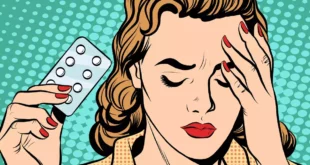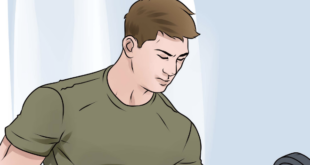Pomidor Quixote
Daily Stormer
January 16, 2020
There are reasons to believe that a Nuclear Apocalypse can save masculinity, and consequently, humanity itself.
David Denkenberger, a mechanical engineer, proposes mushrooms and seaweed as idyllic food sources following a worldwide nuclear disaster.
Both mushrooms and seaweed, as I’ll explain later, can be considered guardians of manhood.
In the aftermath of a nuclear war, firestorms would envelope the sky in a thick blanket of smoke, shutting out the sun and leaving us in darkness.
Without the sun’s rays, famine would spread across the globe – but a mechanical engineer has put together a ‘disaster diet’ that could save humanity during this apocalyptic time.
David Denkenberger explains that in the event of a nuclear winter, humans could survive on crops that did not need much light like mushrooms and seaweed.
…
Now, Denkenberger, who, runs the non-profit Alliance to Feed the Earth in Disasters (ALLFED), explained that mushrooms would be the world’s saving grace.
This fungi could feed on the dead matter from the trillions of trees destroyed in the catastrophic winter, ‘creating a regenerative food source that could potentially feed everyone on the planet for about three years’, BusinessInsider reported.
A 2008 paper discussing the sustainability of mushrooms noted that this crop ‘grows rapidly and yields high returns’.
They do not need advanced technologies for cultivation and can be grown on small plots of land, which would work in the event of an apocalypses – technology would go dead and most of the Earth’s surface could be destroyed.
And the other source would be considered dry food for humans.
‘Seaweed is a really good food source in a scenario like this because it can tolerate a low light levels,’ Denkenberger said.
‘It’s also very fast-growing.’
‘In a nuclear winter, the land will cool down faster than the oceans, so the oceans will remain a little bit warmer. Seaweed can handle relatively low temperatures.’
…
In addition to being a food source, seaweed also contains elements that prevent the body from absorbing radiation.
Kelp contains Iodine 127, which prevents the body from absorbing radioactive iodine 131 which is constantly being released into our atmosphere by so-called normal operations of nuclear power plants and weapons facilities, Maine Seaweed reported.
It also contains sodium alginate which binds with ingested particles of toxic chemicals and various heavy metals in the digestive tract – ultimately ‘aiding the body in excreting radioactive fallout’.
Besides providing a source of calories and helping the body resist radioactive fallout, kelp could also help men fight against the feminizing effects of Modernity.
The modern humanoid inhabits a polluted environment full of plastics, weird chemicals used in food and personal hygiene products, estrogen pills, soy, and many kinds of poisons that lay constant siege against people’s endocrine systems.
With every passing year, men are becoming more and more effeminate and women more and more masculine.
Kelp can help fight against that.
Elevated estrogen levels aren’t natural in male bodybuilders; however, estrogen could rise naturally through the activity of aromatase, a ubiquitous enzyme that converts androgens, such as testosterone, into estrogen. One-third of women’s entire estrogen production stems from the action of aromatase on adrenal and ovarian androgens. Aromatase is particularly active in peripheral fat stores, such as the ones in the legs. So a man carrying excess fat in his legs would likely produce higher levels of estrogen than a leaner man.
But estrogen levels don’t usually get high enough to cause distinct estrogen-related problems, such as gyno. For that to occur, they have to be comparable to or higher than what an average woman generates. In reality, that happens either under pathological conditions or through the use of anabolic steroid drugs, such as testosterone injections, that aromatize. Other drugs can also cause gyno, including growth hormone when used by older men.
…
Some drugs, such as Nolvadex, keep estrogen from binding to its cellular receptors. While effective, Nolvadex brings problems of its own. Structurally similar to estrogen, which likely explains why it can bind to estrogen receptors, it can induce paradoxical estrogenic effects if taken too long or in too high a dose. In addition, Nolvadex inhibits two enzymes that the testes require for the synthesis of testosterone.
The current drugs of choice take a more direct approach by stopping the source of excess estrogen itself: the aromatase enzyme. They’re sold under various trade names, such as Arimidex, Aromasin and Farestan. They all short-circuit the activity of aromatase, and they’re all expensive. They were designed to treat breast cancer in older women whose cancers don’t respond to the older drugs, such as Nolvadex.
Some natural anti-estrogens exist. Soy, like Nolvadex, is molecularly similar to estrogen and can interfere with its actions. High intakes of soy are thought to explain the lower incidence of estrogen-related cancers that occur in Asian than in Western women. Soy, however, presents problems for men; above a certain level it acts like an estrogen in them.
Other natural substances inhibit aromatase. An example is green tea, but the activity is weak, not comparable to the anti-aromatase drugs by any standard. Brown kelp, however, is another matter. ALL Kelp was a popular supplement among bodybuilders around the time Arnold was king of the posing platform. The idea was that it helped increase muscular definition by stimulating the thyroid gland. Kelp, or seaweed, is rich in the trace mineral iodine, which makes up two-thirds of thyroid hormone. What bodybuilders at the time didn’t realize was that kelp was also loaded with sodium, a mineral known for its water-retaining property.
As for thyroid stimulation, a deficiency of iodine can impair thyroid activity, but too much can do the same thing. Since kelp was thought to be a natural, innocuous substance, it wasn’t unusual for bodybuilders to pop as many as 30 to 50 tablets a day, which may have had the paradoxical effect of inhibiting thyroid hormone synthesis.
Where estrogen is concerned, kelp has promise. In fact, some scientists now think that it wasn’t the soy that prevented all those cancers in Asian women; it may have been their high kelp intake.
A recent study examined the effects of kelp in both rats and isolated human cells derived from female ovaries. Giving rats kelp led to an 18 to 33 percent reduction in circulating levels of 17-beta estradiol, the most potent form of estrogen. The amount of kelp they got was comparable to the daily human intake in Asian populations. In the human cells, kelp resulted in a 23 to 35 percent reduction in active estrogen. The experimenters think that kelp may either directly inhibit estrogen production or enhance its rapid metabolic breakdown. Kelp showed no effects on aromatase.
The researchers also found that kelp binds to estrogen cell receptors much in the manner of Nolvadex. The question that remains is what in kelp is responsible for what looks like anti-estrogen activity.
Kelp appears to have anti-estrogen effects but no effects on aromatase.
You know what appears to have aromatase inhibiting effects though?
Mushrooms.
A study titled “White button mushroom phytochemicals inhibit aromatase activity and breast cancer cell proliferation” found that “white button mushroom (species Agaricus bisporus) suppressed aromatase activity dose dependently.”
What all of the above means, in practice, is that kelp can help you lower your estrogen levels and that mushrooms can help your body avoid producing excess estrogen in the first place.
White button mushrooms can also help overweight men lose their weight and their so-called “man” boobs faster.
These two foods should be considered protectors of manhood.
They are the heroes we need in a time where the environment itself is trying to get you to cut your dick off.
Healthy sons of Modernity.
There is such a thing as too much kelp
Kelp has plenty of iodine, and too much iodine can be bad for you. It can mess with your thyroid and with your sleep.
If you want to add kelp to your diet, stay well below the estimated Japanese levels of intake.
If you’re using dry, powdered kelp, start with an eighth of a teaspoon a week for a month and closely monitor changes in energy levels, mood, and sleep patterns, then move to an eight of a teaspoon two times a week and repeat the observation period. Take a couple of months off after that.
You can go crazy with white button mushrooms though.
 Daily Stormer The Most Censored Publication in History
Daily Stormer The Most Censored Publication in History









